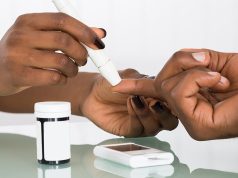Findings seen for participants with sugar restriction in first 1,000 days of life
By Lori Solomon HealthDay Reporter
WEDNESDAY, Oct. 29, 2025 (HealthDay News) — Exposure to sugar restriction during the first 1,000 days of life is associated with lower cardiovascular risks in adulthood, according to a study published online Oct. 22 in The BMJ.
Jiazhen Zheng, from Hong Kong University of Science and Technology in China, and colleagues examined whether exposure to sugar rationing during early life (first 1,000 days) is associated with a reduction in the risk for cardiovascular outcomes in adulthood. The analysis included 63,433 U.K. Biobank participants born between October 1951 and March 1956.
The researchers found that longer exposure to sugar rationing was associated with progressively lower cardiovascular risks in adulthood. Participants exposed in utero plus one to two years had a lower risk for cardiovascular disease (hazard ratio [HR], 0.80), myocardial infarction (HR, 0.75), heart failure (HR, 0.74), atrial fibrillation (HR, 0.76), and stroke (HR, 0.69), as well as cardiovascular disease mortality (HR, 0.73). Nearly one-third (31.1 percent) of the sugar rationing-cardiovascular disease association was jointly mediated by incident diabetes and hypertension. There was also an association between sugar rationing and a modest increase in left ventricular stroke volume index and ejection fraction.
“Our findings showed that constrained sugar exposure in utero and during infancy, particularly with longer durations of exposure, provided progressively greater protection against the risks of multiple cardiovascular outcomes and delayed disease onset,” the authors write.
Copyright © 2025 HealthDay. All rights reserved.








